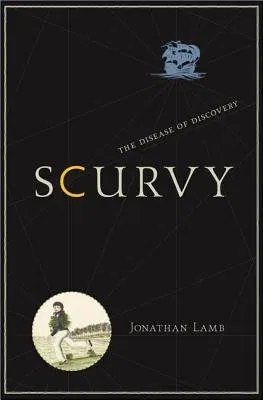Jonathan Lamb
(Author)Scurvy: The Disease of DiscoveryPaperback, 4 December 2018

Qty
1
Turbo
Ships in 2 - 3 days
Only 2 left
Free Delivery
Cash on Delivery
15 Days
Free Returns
Secure Checkout

Print Length
336 pages
Language
English
Publisher
Princeton University Press
Date Published
4 Dec 2018
ISBN-10
0691182930
ISBN-13
9780691182933
Description
Product Details
Author:
Book Format:
Paperback
Country of Origin:
US
Date Published:
4 December 2018
Dimensions:
22.86 x
14.73 x
2.29 cm
ISBN-10:
0691182930
ISBN-13:
9780691182933
Language:
English
Location:
Princeton
Pages:
336
Publisher:
Weight:
453.59 gm